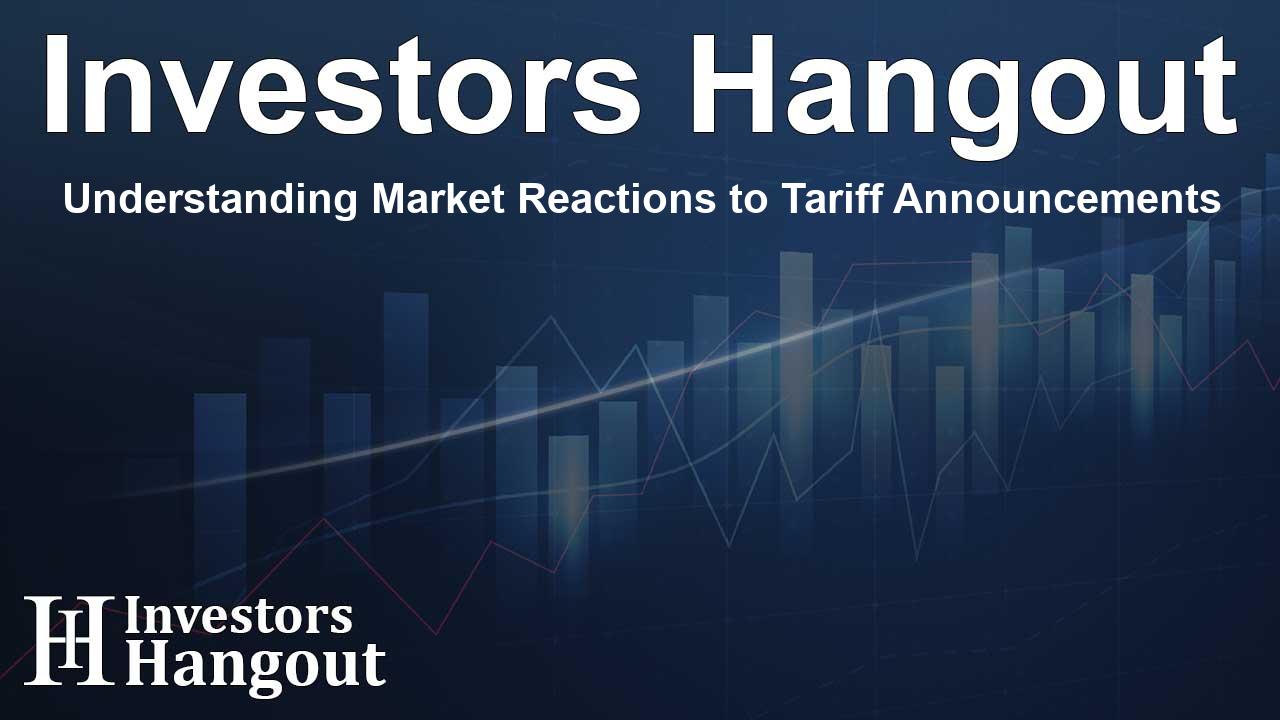Understanding Market Reactions to Tariff Announcements

Understanding Market Reactions to Tariff Announcements
Recent statements regarding trade tariffs have set the market abuzz, highlighting the delicate balance of international relations. U.S. leadership recently announced plans to impose tariffs that could significantly affect economies across North America and beyond. This article delves into the varying reactions within global markets and the remarks from key financial analysts.
Details of the Tariff Proposal
The proposed tariff plan includes a considerable 25% levy on products sourced from neighboring countries, including Canada and Mexico. Additionally, there is an intended 10% tax on goods imported from China. Such announcements can ripple through markets, creating a wave of speculation and response.
The Dollar's Reaction
The immediate response from the foreign exchange markets was a notable rally of the U.S. dollar, which appreciated 1% against the Canadian dollar and surged 2% against the Mexican peso. However, the broader context showed that stock futures in the U.S. were under pressure, reflecting investor uncertainty about the impact of these tariffs on future trade and economic growth.
Expert Insights on Market Dynamics
Market analysts shared insights that captured the atmosphere surrounding these developments. Khoon Goh, a research head at ANZ in Singapore, expressed concerns over the implementation timing of tariffs. The critical question remains: will these tariffs take effect on the very first day?
Conditional Tariffs and Trade Tactics
Goh also pointed out the rationale behind the tariffs, which focuses on issues surrounding drug trafficking and migration. This context may play a significant role in how the tariffs are viewed and negotiated moving forward. It suggests that these trade barriers could be leveraged as tools for broader negotiations, rather than isolated economic policies.
Market Analysts Weigh In
Tony Sycamore from IG Markets in Sydney offered commentary on how market expectations may be at odds with actual policies. There was a collective belief that Scott Bessent, who was recently nominated for a senior position, might influence a more tempered approach to trade policies. However, the tariff announcements revealed that the current leadership remains steadfast in its objectives.
Reassessing Worst-Case Scenarios
Sycamore also highlighted that earlier statements suggested tariffs could reach much higher than announced. This revelation may indicate a re-evaluation of what was perceived as the worst-case scenario. If the actual implementation is milder than anticipated, it could lead to a more optimistic market outlook in the medium term.
The Impact on Mexico and Canada
Market analyst Matt Simpson from City Index expressed thoughts on how these tariffs may strategically impact Mexico more than Canada. The fluctuations in currency values point to an expectation that the Mexican economy might bear the brunt of these tariffs, alongside extensive trade relationships between the U.S. and its southern neighbor.
Conclusion: Anticipating Future Trends
As the situation develops, markets will be closely monitoring how implementation unfolds and whether there will be adjustments in tariff strategies that could influence economic sentiment. Investors and stakeholders are keen to see if these announcements are merely the beginning or part of a larger framework of negotiations that could reshape trade dynamics.
Frequently Asked Questions
What tariffs were proposed recently?
The proposal includes a 25% tariff on goods from Canada and Mexico, plus a 10% tariff on Chinese products.
How did the markets react to the tariff announcement?
The U.S. dollar strengthened against the Canadian dollar and Mexican peso, while stock futures dipped.
What is the significance of these tariffs?
The tariffs are intended to address issues related to migration and drug trafficking, which may influence future negotiations.
Who are the analysts commenting on this situation?
Analysts such as Khoon Goh and Tony Sycamore have shared insights regarding market dynamics and expectations.
What might this mean for trade relations?
These tariffs could lead to significant shifts in trade relations, especially affecting Mexico and impacting overall market confidence.
About Investors Hangout
Investors Hangout is a leading online stock forum for financial discussion and learning, offering a wide range of free tools and resources. It draws in traders of all levels, who exchange market knowledge, investigate trading tactics, and keep an eye on industry developments in real time. Featuring financial articles, stock message boards, quotes, charts, company profiles, and live news updates. Through cooperative learning and a wealth of informational resources, it helps users from novices creating their first portfolios to experts honing their techniques. Join Investors Hangout today: https://investorshangout.com/
Disclaimer: The content of this article is solely for general informational purposes only; it does not represent legal, financial, or investment advice. Investors Hangout does not offer financial advice; the author is not a licensed financial advisor. Consult a qualified advisor before making any financial or investment decisions based on this article. The author's interpretation of publicly available data shapes the opinions presented here; as a result, they should not be taken as advice to purchase, sell, or hold any securities mentioned or any other investments. The author does not guarantee the accuracy, completeness, or timeliness of any material, providing it "as is." Information and market conditions may change; past performance is not indicative of future outcomes. If any of the material offered here is inaccurate, please contact us for corrections.